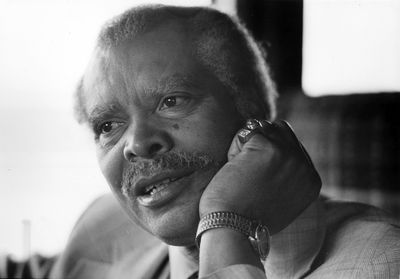Political pioneers reflect
Local politicians say race hasn’t been serious obstacle

Like its population since the late 1800s, Spokane’s political landscape has been largely, although not exclusively, white.
But it can claim some successes, such as electing a black mayor before many other Western cities its size or larger.
Jim Chase, who had been elected to the Spokane City Council in 1975, won the mayor’s office in a 1981 campaign in which race was never raised as an issue by him or his white opponent, fellow Councilman Wayne Guthrie. At one point, the Guthrie campaign even disavowed a supporter who used a racial epithet to describe Chase.
Since that time, voters have elected Roberta Greene, who is black, and Cherie Rodgers, who is Native American, to two terms each on the City Council; Chris Marr, who is Asian-American, to the state Senate; and Don Barlow, who is Native American, to the state House of Representatives. Mayor Mary Verner also has Native American ancestry.
Like Chase’s run for mayor, race didn’t become an issue in most campaigns.
“There may have been underground murmurings about an African-American woman running, but we never ran into anything,” said Greene. Racism “never reared its ugly head in my races.”
Born in the South and raised in an era of segregation, Greene said when she and her husband arrived in Spokane in 1986, they’d heard the city had had a black mayor and didn’t think anything about it. Where she came from, having blacks elected to office was commonplace.
“I didn’t realize until later how unusual that was,” she said of Chase’s election.
She’d never suggest that some minorities in the community don’t face racism, Greene said. But her election, like most, revolved around name recognition, being active in the community and being a business owner – not on race.
Marr, elected to the state Senate in 2006, said he didn’t think being Asian-American was an issue in his race against incumbent Sen. Brad Benson, although he didn’t know any way to test that theory.
“There were a lot of people who thought it would be an issue,” he said. “But in my case, I went against stereotypes in a lot of ways.”
In his traditionally Republican district, it may have been more surprising that he got elected as a Democrat, he said.
Blacks formed political clubs in Spokane as early as 1890, but minority candidates were a rarity before Chase. When attorney Carl Maxey ran unsuccessfully for the Legislature in the 1950s, the fact that he was black was mentioned as groundbreaking in some reports. Spokane voters elected an African-American, Robert Taylor, to the Spokane Public Schools board in 1969.
And not all local politics has been free of racism. In 1993, a member of the county’s Democratic Party referred to the Chinese owners of the Davenport Hotel as “chinks.” When calls for an apology were met with increasingly strident refusals, the state party pulled its state convention out of Spokane.
Marr was a young Democratic activist pushing for an apology in 1993-94, in what became known as the “racial slur incident.” He said recently he didn’t think it pointed out that the community, or the local party, was racist. After all, at the time its chairman was black.
“I’d never run into any institutionalized racism. That’s why it stood out at the time,” Marr said, adding that he thinks the use of the racial slur was more a result of the party being isolated and insulated from changes going on in the country.